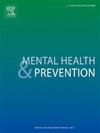在印度、尼泊尔和斯里兰卡共同设计社区参与工具包,以提高对神经发育迟缓和残疾筛查和护理的认识
IF 2.4
Q2 Medicine
引用次数: 0
摘要
南亚是全球神经发育迟缓和残疾(ndd)患病率最高的地区,95%的自闭症谱系障碍儿童生活在该地区。早期发现ndd可以弥合护理差距,改善家庭理解和调整,最大限度地发挥儿童的发展潜力。然而,低意识、污名化和结构性障碍延迟了检测,即使在可能获得干预措施的地方也是如此。也有有限的研究记录照顾者的观点,以改善他们的照顾旅程。本研究旨在开发一个“社区参与工具包”,通过与一系列利益相关者的参与性研究,提高社区对ndd的认识,改善家庭对循证信息的及时获取,并加强护理人员对印度、斯里兰卡和尼泊尔社区检测和护理途径的参与。方法共185名参与者,包括护理人员(n=94)、非专业卫生工作者(n=68)、专业服务提供者(n=14)和自闭症成人(n=9),参加访谈和共同设计研讨会。三个国家的社区咨询委员会指导了该工具包的开发。结果研究结果揭示了典型护理过程中获取实用信息的关键时间点。早期发现的障碍包括缺乏对发育里程碑的认识,不明确的护理途径和错误信息。与会者强调,需要在整个过程中为护理人员提供具体、实用的指导,以跟踪早期发展、寻求帮助和参加干预措施。社区参与工具包包括九种工具,包括海报、视频和传单,以支持护理人员,由训练有素的非专业卫生工作者分发,以改善NDD的发现和护理。本文章由计算机程序翻译,如有差异,请以英文原文为准。
Co-designing a community engagement toolkit to raise awareness of screening and care for neurodevelopmental delays and disabilities in India, Nepal, and Sri Lanka
Background
South Asia has the highest prevalence of neurodevelopmental delays and disabilities (NDDs) globally, with 95% of children with Autism Spectrum Disorder living in this region. Early detection of NDDs can bridge care gaps and improve family understanding and adjustment, maximising a child’s developmental potential. However, low awareness, stigma, and structural barriers delay detection, even where interventions might be accessible. There is also limited research documenting caregivers' perspectives on improving their caregiving journeys.
Objective
This study aimed to develop a ‘Community Engagement Toolkit’ using participatory research with a range of stakeholders to raise community awareness of NDDs, improve timely access to evidence-based information for families, and enhance caregivers' engagement with a community-based detection and care pathway in India, Sri Lanka, and Nepal.
Methods
A total of 185 participants, including caregivers (n=94), non-specialist health workers (n=68), specialist service providers (n=14), and autistic adults (n=9), participated in interviews and co-design workshops. Community Advisory Boards in three countries guided the toolkit’s development.
Results
Findings revealed key time points in typical caregiving journeys where access to practical information is crucial. Barriers to early detection included a lack of awareness of developmental milestones, unclear care pathways, and misinformation. Participants emphasised the need for specific, practical guidance for caregivers throughout their journey to track early development, seek help, and enrol in interventions.
Conclusion
The Community Engagement Toolkit comprises nine tools, including posters, videos, and leaflets, to support caregivers, distributed by trained Non-Specialist Health Workers to improve NDD detection and care.
求助全文
通过发布文献求助,成功后即可免费获取论文全文。
去求助
来源期刊

Mental Health and Prevention
Medicine-Psychiatry and Mental Health
CiteScore
2.10
自引率
0.00%
发文量
22
审稿时长
24 days
 求助内容:
求助内容: 应助结果提醒方式:
应助结果提醒方式:


